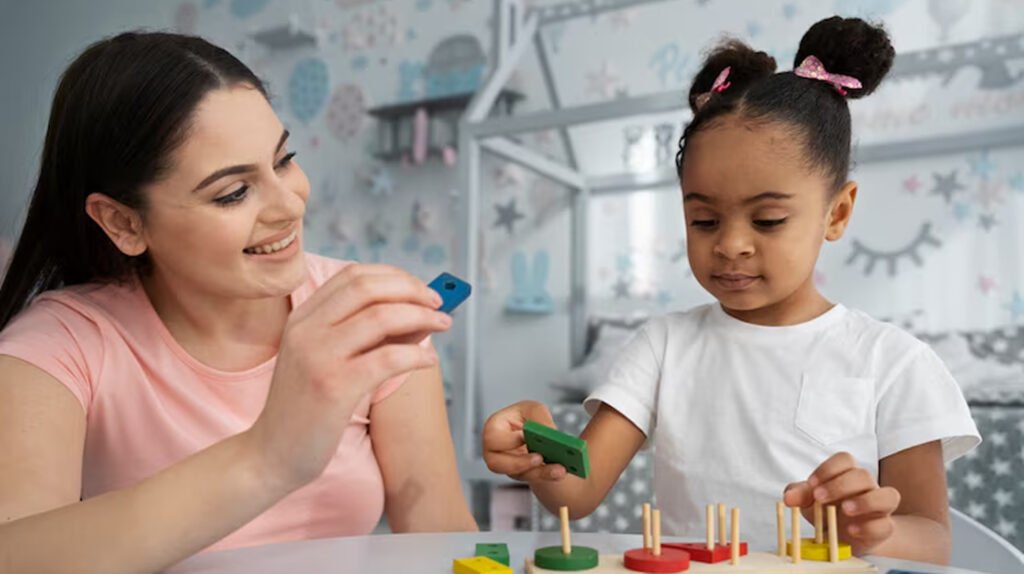“Can you share a specific case where early intervention in a child’s development made a significant difference? What was the key takeaway from this experience?”
A Child who was struggling with speech delays at the age of 3

I once worked with a child who was struggling with speech delays at the age of 3. His parents were concerned, but after early intervention with a speech therapist, we saw remarkable progress within just a few months. The therapy focused on building basic communication skills, and by the time he was 4, his speech was almost on par with his peers. The key takeaway from this experience was the importance of early identification and intervention. The earlier we can address developmental concerns, the better the outcomes. Waiting too long can make it harder to catch up, and the earlier we provide support, the more we empower both the child and their family to succeed. This experience reinforced my belief in the critical window of development and how vital timely support can be.
Nikita Sherbina, Co-Founder & CEO, AIScreen
A 2-year-old boy saying a few single words

Background:
A 2-year-old boy, let’s call him Liam, was brought in for evaluation after his pediatrician noted that he was only saying a few single words and relied mostly on gestures. His parents were concerned but unsure whether to wait or seek help.
Intervention:
Liam was referred to a speech-language pathologist (SLP) who conducted a thorough evaluation and diagnosed him with a moderate expressive language delay. He began weekly speech therapy focused on:
Encouraging verbal labeling through play
Using simple sign language to build communication confidence
Coaching the parents on how to support language development at home through daily routines (e.g., bath time, mealtime)
Results:
Within six months, Liam’s vocabulary expanded from under 10 words to over 100, including simple two-word combinations. His frustration levels dropped, and his social interactions improved dramatically. By age 3, he was communicating within the normal developmental range and no longer required intensive support.
Marc Bromhall, Founder, Beauty Net
Delays in their child’s communication and social interaction

A parent once reached out after noticing delays in their child’s communication and social interaction. Advice from others told them to wait it out. They didn’t. They acted. After a developmental screening, support services began. Within months, the child showed progress. The shift was clear. More engagement. More connection. More confidence. That step changed everything.
Stories like this come in every week. A parent spots something off with behavior or development. Instead of waiting, they move forward. They ask for help. They find the right support. Delays don’t fix themselves. Waiting often makes things harder. Early action doesn’t guarantee perfection, but it gives the child a stronger chance to keep up.
The main takeaway is simple. Notice. Act. Follow through. Even if the concern turns out to be small, acting early avoids bigger problems later. Early support builds skills and lowers stress for both the child and the parent. Instincts matter. Acting on them changes outcomes.
Cory Arsic, Founder, Canadian Parent
Increasing behavioral issues and classroom outbursts

I worked with a young boy, just 8 years old, who was referred for increasing behavioral issues and classroom outbursts. On the surface, he was being labeled as “defiant” and “unfocused,” but through a comprehensive evaluation, we discovered early signs of trauma-related anxiety and emerging ADHD. His single mother had been battling opioid addiction, something he didn’t talk about, but which deeply impacted his sense of safety and stability.
Because we caught it early, we implemented school-based supports, parent coaching, trauma-informed therapy, and medication management, not only addressing the behavior but also the emotional foundation underneath. That child is now a thriving high school student with strong coping tools and no juvenile system involvement.
The key takeaway? Early intervention isn’t just about avoiding academic delays. It’s about interrupting the formation of negative self-beliefs— “I’m the bad kid,” “I don’t belong,” “I can’t trust anyone.” These narratives, when left untreated, often morph into adolescent rebellion, substance use, or deeper psychiatric issues. When we act early, we shift a child’s entire trajectory, from survival mode to self-efficacy.
In addiction treatment, we see the long-term consequences of what goes untreated. But we also know that with early care, we don’t just treat symptoms, we preserve potential.
Ash Bhatt, Chief Medical Officer, Legacy Healing Center

